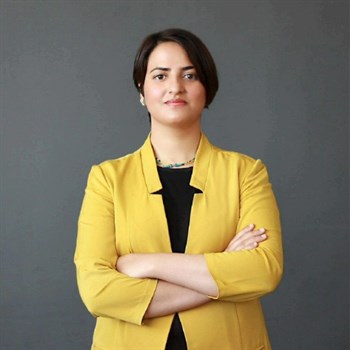Install the app
Install this application on your home screen for quick and easy access when you’re on the go.
Just tap then “Add to Home Screen”
Install this application on your home screen for quick and easy access when you’re on the go.
Just tap then “Add to Home Screen”
Install this application on your home screen for quick and easy access when you’re on the go.
Just tap then “Add to Home Screen”

https://ecpr.eu/profile/InshahMalik
Dr. Inshah Malik serves as an Associate Professor of Politics at the School of Politics and Diplomacy of New Vision University. She also directs Middle-East and South Asia area studies research and leads a Master’s Degree Program in Democracy and E-governance. The program of study offers a comprehensive curriculum that combines knowledge and practical experience of Democratic Institutions and politics in various global North and South regions. This program directly addresses challenges to democratic governance, transitions, the rise of authoritarianism, and the emergence of Artificial Intelligence in governance and institutions worldwide. Dr. Malik holds a PhD in Political Theory and Gender Studies from Jawaharlal Nehru University, India. She was also a Fox International Fellow at Yale University in 2014. She has held various academic positions, including Assistant Professor at Kardan University, Afghanistan, Visiting Researcher at Giorgi Tsereteli Institute of Oriental Studies, Ilia State University, Georgia, Visiting Assistant Professor at the University of Washington, USA, and Visiting Scholar at Northwestern University, USA, among others. Over the years, she has developed and taught a wide range of courses, including subjects like research methodology, critical thinking, histories of world civilization, political ideologies, theories of war and peace, and politics and media. Her research spans diverse areas such as sovereignty studies, gender studies, Islam, politics of post-colonialism, nationalism, emerging technologies, new media, and Artificial Intelligence. Her work on the Kashmir region, Afghanistan, Iran, India, Pakistan, and the Caucasus has drawn attention to post-Soviet and postcolonial authoritarianism and its gendered implications. Her ethnographic political theory monograph with Palgrave-Macmillan, 'Muslim Women, Agency and Resistance Politics,' on the Kashmir region highlights social-political struggles and processes of self-constitution of women shaped by the lack of human rights, absence of democratic institutions, processes, and the rule of law. Currently, she is working on a comprehensive research project on 'Sovereignties, Gendered Mourning, and Feminist Politics: A Study of the formation of Contemporary Womanhood in the Middle East, Caucasus, and Central Asia.' In this study, she investigates major moments of gender and human rights protests in Kashmir, Afghanistan, Iran, and Georgia to dissect theoretical conceptions and geographical notions of contesting sovereignties, to understand the architecture of women’s subjectivity as it is produced through the lack of political, civic, and individual freedom. She explores three movements: the 2016 funerary grief movements in Kashmir, the 2019 Shame movement in Tbilisi, Georgia, the 2021 Taliban takeover of Afghanistan, and the 2022 large-scale protests in Iran. She employs an ethnographic methodology to map the diversity of politics and political cultures and, through contextual analysis, to understand the gendered nature of protests and mourning and self-constructions that expose the limits of sovereignties. This research further highlights the problems in the achievement of democratic transitions. In addition to a monograph, she has published several academic papers that address these areas through an intersectional approach. Notable publications include 'Protest, Death, and Public Funerals: The Affective Site of Feminist Politics in Kashmir' in the International Feminist Journal of Politics, a paper in an edited volume, 'Sexuate Agency and Autonomy in Witnessing Kashmir Violence' published by Palgrave Macmillan, 'Imaginations of Self and Struggle; Women in the Kashmiri Armed Struggle' in the Economic & Political Weekly, and 'Kashmiri Desire and Digital Space: Queering Indian Citizen and National Identity' in an edited volume published by Cambridge University Press, among others. Her upcoming publications include a volume on 'Body, Politics, and Nation: Intersections of (Post) Modernity,' to be published by Vernon Press. She also has an upcoming essay exploring decolonial knowledge-making titled 'Embodying Azadi: Conscious and Unconscious Womanhood in Kashmir' for Bloomsbury Press, as well as a comprehensive political history of the Kashmir region for Penguin India. Her contributions also extend to a non-fiction title, 'Home: A Lived History of Kashmir,' published by Penguin, India. Additionally, she will be chairing section at the European Conference on Politics and Gender 2024.
Citizenship, Civil Society, Conflict, Conflict Resolution, Contentious Politics, Democracy, Ethnic Conflict, Gender, Human Rights, India, Islam, Local Government, National Identity, Nationalism, Policy Analysis, Political Methodology, Political Participation, Political Psychology, Political Theory, Political Violence, Developing World Politics, Critical Theory, Feminism, Identity, Internet, Marxism, Mixed Methods, Political Ideology, Activism